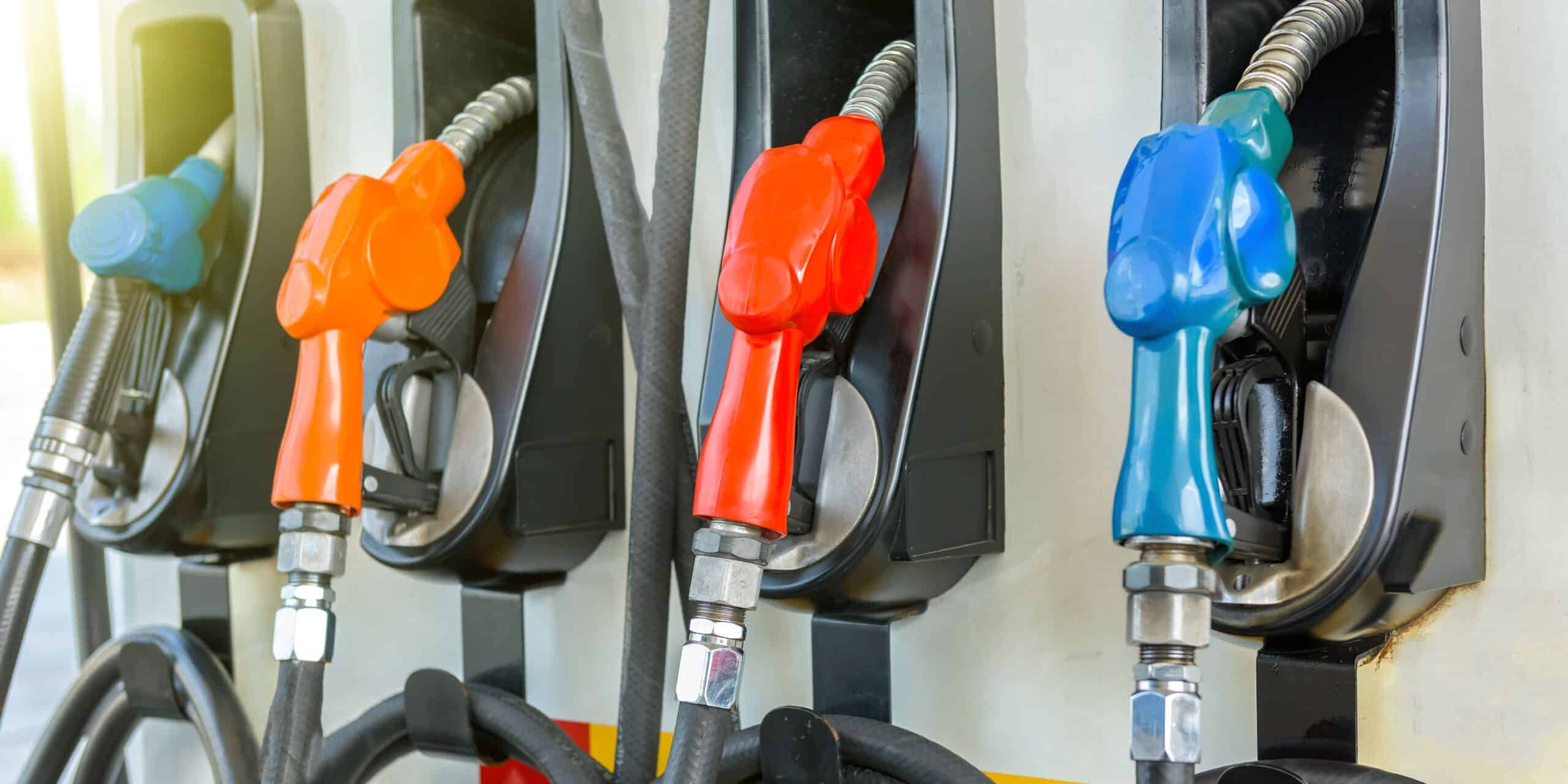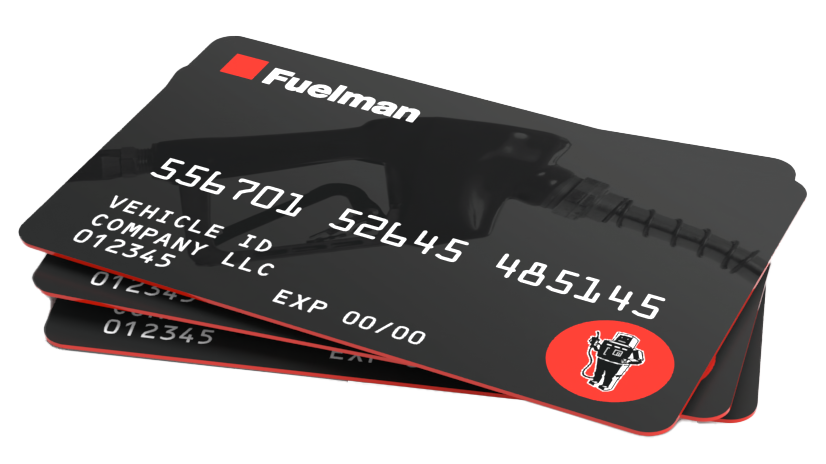A trucking company has a lot of expenses, but perhaps the biggest is gas. Trucks travel long distances to deliver their loads, and these journeys consume many gallons of gas. But there’s an easy way for trucking companies to manage fuel expenses. It may even save money.
So what is a fuel card? A fuel card can work like a prepaid, debit or credit card and links to an account. Truck drivers use this card to pay for fuel, and the expense will link to one integrated account. These cards make it easy to manage fuel expenses across the fleet, while potentially offering fuel discounts. Opening a gas card has many benefits that you can learn more about below.
How does a fuel card work?
Fuel cards work similarly to debit or credit cards and can be used to pay for gas or diesel. These cards are accepted at various gas stations, depending on the card. They can be used to pay at the pump or inside at the cashier. This way, truck drivers and owner-operators can ensure all their fuel expenses are on the same account.
What sets a fuel card apart from a standard debit or credit card are the features and rewards offered. Fleet cards offer truck drivers and owner-operators the chance to streamline fuel expenses while potentially saving money on gallons of gas. They also enable fleet owners to issue a card to each driver with fuel expenses for all trucks consolidated on the same statement.
What factors do you look for in fuel cards?
There are a few factors to look for in any fuel card, including:
- Convenient locations: Ensure the card’s network of partner gas stations fits your business’s needs.
- Online tools: These should allow for easier management and access to documents.
- Savings: Fuel cards can provide discounts and access to savings on gas per gallon.
- Efficient customer service: You need a company that is responsive and helpful in case a problem arises.
- Technology: Apps should provide alerts, be user-friendly, and compatible with both iOS and Android platforms.
Other cards may provide more benefits than those above, but these are the essentials.
Can anyone get a fuel card?
All businesses are eligible for fuel cards, regardless of the company’s size. It could be a trucking company with a fleet of 1,000 or a self-employed driver. It’s essential to know the minimum monthly spending amount on a gas card to ensure you can exceed it. The minimum is usually around $500 to $1,000, depending on the card.
Is a fuel card a credit card?
Some fuel cards are also credit cards. They will provide you with a credit limit and will expect you to pay down the statement monthly. These cards will also charge interest and late fees, though they can also provide rewards. Other types of fuel cards are prepaid cards, where the card owner loads the card with money and can only spend that amount.
Can you get a fuel card with bad credit?
It is possible to get a fuel card even if your business is struggling with credit checks, or hasn’t had a chance to establish good credit yet. Your options may be more limited, and what is available to you may not have as many features and benefits. Some card issuers may also look at your bank statements and spending for a better understanding of your business’s finances.
Is fuel cheaper with a fuel card?
Yes! Many gas cards offer discounts or cashback on fuel purchased in their network, so fuel is substantially cheaper when you visit their gas stations. Savings can range anywhere from a few cents per gallon to over 50 cents per gallon.
Can a sole trader get a fuel card?
Yes, sole traders can obtain fuel cards, enjoying similar features and benefits as companies, but they should note that the minimum monthly usage requirement applies, so review the terms carefully before opening an account.
Benefits of fuel cards
Now that you have a clear understanding of how fuel cards work and who can use them, check out some of their benefits.
Security
This benefit is advantageous for larger companies. Whoever manages the cards can control who uses them, what they buy, where, and spending limits, among other security measures. This is a great feature if you’re an owner-operator giving fleet cards to your network of drivers. It ensures they are only being used as intended. This benefit also helps to minimize fraud and prevents drivers from having to carry a lot of cash.
Savings
There are many ways to save money with cards besides fuel discounts, although this is usually the most substantial savings. Many cards don’t charge transaction fees and help drivers find the cheapest fuel near their current locations. Some cards also offer discounts on maintenance and tires, and provide some type of roadside assistance program. There are even cards that provide cash back on purchases at hotels, restaurants and other places you may need to stop on the road.
Visibility
Fuel cards are seamlessly integrated with online programs and mobile apps, guaranteeing instant and accurate documentation of every transaction. This transparency not only fosters trust between drivers and owner-operators but also greatly simplifies budgeting and expense management, ensuring every cent is accounted for and eliminating discrepancies that may arise at the end of a job or month-to-month.
Documentation
Many fuel cards offer software that gives you easy access to International Fuel Tax Agreement (IFTA) reports, streamlining documentation processes. You can usually view and download reports online and access them anytime you need. That way, you won’t spend hours trying to calculate your fuel tax. It’s already done for you.
Streamline expenses and save money
Simplify end-of-month budgeting by consolidating fuel expenses with a fuel card, regardless of fleet size. Explore available card options, some offering rewards, for efficient fuel tracking and potential cost savings, providing a streamlined approach to managing your finances.
FAQ
Fuel cards are better for truck drivers and owner-operators because they can include rewards and features like IFTA reports.
Most companies are eligible for a fuel card, though they may have limited options if they have poor credit or are a newer company. Fuel cards will often look at bank statements and other documents for a full look at your company’s financials.
Fuel card fees vary by card. Some cards may charge monthly membership fees while others may charge annual fees or transaction fees. Research different cards to understand its fees and charges before opening an account.




